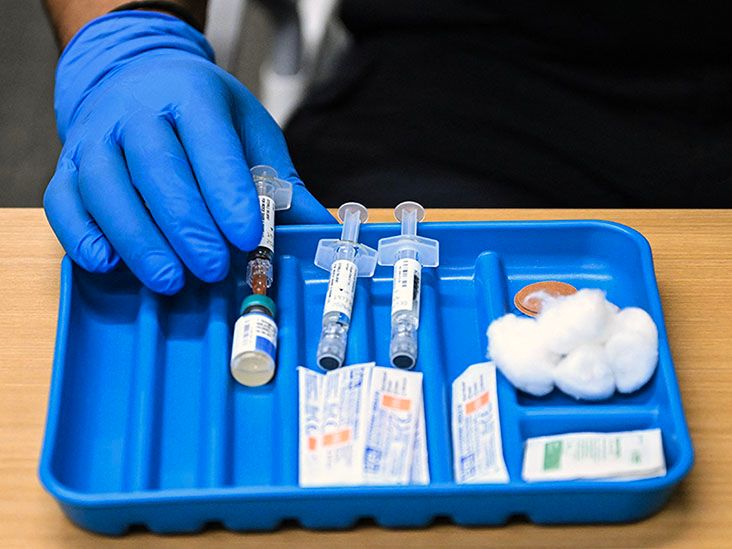Vaginal infections can cause pain and discomfort. Without treatment, they may lead to complications that can adversely affect a person’s health. However, people can treat or manage most vaginal infections.
This article will discuss some different types of vaginal infections and their common symptoms. It will also cover their treatment options and how to prevent them.

If a person experiences any of the following symptoms, they should see a doctor:
- unusual vaginal discharge
- vaginal discharge that has a strong odor
- irritation and swelling of the vagina and vulva
- pain and burning sensations while urinating
The following sections will look at some common causes of vaginal infections, as well as their specific symptoms and some treatment options.
Vaginal yeast infections are a result of the fungus called Candida, typically Candida albicans.
Yeast infections occur when the Candida species penetrate the mucosal lining of the vagina, resulting in an inflammatory response.
Symptoms
Some symptoms of a yeast infection include:
- irritation, itching, and burning in and around the vagina
- thick, sticky, white discharge
- swelling and flushing around the vulva and vagina
Some people may experience a worsening of symptoms just before a menstrual period.
Treatment
Because yeast infections occur due to a fungus, people can treat them with antifungal agents.
People can either take antifungal medication orally or apply a cream to the inside of the vagina. Both of these options are available over the counter.
Pregnant people should not take oral antifungal medication.
Some bacterial infections that affect the vagina include:
Bacterial vaginosis
Bacterial vaginosis (BV) occurs when there is an overgrowth of the bacteria that are naturally present in the vagina. This is the result of a
Symptoms
Not everyone with BV will experience symptoms, the
However, if symptoms are present, a person can expect:
- thin gray or white discharge
- a fishy-smelling odor from the vagina
- a burning sensation while urinating
- pain during sexual intercourse
- itching of the vulva
Treatment
A doctor will usually prescribe clindamycin or metronidazole for BV. If a person develops recurring BV, they will likely prescribe a second course of antibiotics or treat the condition for a longer period of time.
One 2020 article states that up to
Chlamydia and gonorrhea
Other bacterial infections, such as chlamydia and gonorrhea, are sexually transmitted infections (STIs).
Symptoms
The
However, symptoms may include:
- white, green, or yellow discharge
- bleeding
- a burning sensation during urination
- pain during sexual intercourse
Symptoms of gonorrhea include:
- vaginal discharge that may be green, white, or yellow
- pelvic pain
- a burning sensation while urinating
- swelling and pain of the labia
Treatment
According to one
A person should not have sex until a week after finishing this medication.
Some viral vaginal infections include herpes simplex virus type 2 (HSV-2), which causes herpes, and the human papillomavirus (HPV), which causes genital warts.
A person can contract these viruses through sexual intercourse or by coming into skin-to-skin contact with a person who has them.
Genital herpes
Symptoms of genital herpes include:
Treatment
The symptomatic appearance of herpes tends to disappear after
Doctors cannot cure herpes, but people can undergo antiviral therapy to help manage the symptoms.
Genital warts
Symptoms of genital warts include:
- warts, either separate or in clusters, around and inside the vagina and anus
- warts that may bleed
- itching, flushing, or discomfort
Treatment
Like genital herpes, there is currently no cure for genital warts. However, a 2020 article states that for
Although there is no cure, doctors may be able to remove visible warts, either through the use of surgery or with topical solutions that people can apply themselves.
Trichomoniasis, or trich, is a very common STI. This infection occurs due to a protozoan parasite called Trichomonas vaginalis.
The CDC note that in the United States, it affects approximately
Symptoms
Approximately 70% of people do not present with signs or symptoms. Some people begin to show symptoms within 5–28 days, while others may not develop symptoms until much later.
If symptoms are present, they may include:
- itchy, sore, flushed, or burning genitals
- a change in vaginal discharge, such as:
- an increase in volume
- a change in color to clear, yellow, or green
- the production of thin discharge
- discomfort during urination
Treatment
A person can take antibiotics to treat trich. A doctor will prescribe either metronidazole or tinidazole.
Noninfectious vaginitis typically occurs due to irritants. Certain things that come into contact with the vagina may cause an allergic reaction.
There are many different things that a person may be allergic to or have a sensitivity toward,
- sperm fluid
- spermicides
- latex condoms
- fragrances or cosmetics
- lubricants
- feminine hygiene products
- bubble baths and other soaps with fragrances
- sanitary pads
- other personal care products
- nickel plated objects
- douches that people do not dilute correctly
- close fitting underwear and lingerie
Symptoms
Symptoms of an allergy or sensitivity to triggers include:
- swelling and irritation of the vagina and vulva
- flushing of the vagina and vulva
- pain, burning, and stinging sensations on the vulva
Treatment
The main form of treatment for vaginal discomfort as a result of irritants is to avoid any known triggers.
To find out what triggers a reaction, a doctor may order a patch test. During a patch test, they will apply different substances to the skin to determine which ones cause an allergic reaction.
If a person does receive treatment for a vaginal infection, it
In PID, the womb, ovaries, and fallopian tubes experience inflammation. In postpartum endometritis, the uterine lining grows outside of the uterus.
During pregnancy
The vaginal infections listed in this article may adversely affect people during pregnancy.
According to the
- BV may increase the chance of giving birth prematurely.
- Chlamydia can increase the chance of giving birth prematurely and cause eye infections or pneumonia in the infant.
- Gonorrhea can cause pregnancy loss, premature birth, and low birth weight, as well as eye infections and blindness in the infant.
- People with genital herpes may pass this infection to the infant while giving birth.
- Trich
can causeTrusted Source preterm birth and a low birth weight.
It is important to see a doctor if a person experiences any symptoms of a vaginal infection or if a sexual partner informs them that they have an STI.
A doctor will investigate the symptoms to diagnose the cause, and they will be able to form a treatment plan.
To make a diagnosis, a doctor may swab the vagina or the skin outside the vagina and send this swab to a laboratory for analysis.
There are multiple tests that a laboratory can perform on these swabs,
- the wet prep, wherein a technician will put the swab into a saline solution and examine it
- gram stain, often for the diagnosis of BV
- cultures, often for the diagnosis of yeast infections
- DNA technologies, often for the diagnosis of bacterial STIs
Although vaginas react to possible triggers of allergies and other lifestyle factors in different ways, people can avoid certain things to reduce their chance of experiencing a vaginal infection.
For example, they can try:
- avoiding scented sanitary products, vaginal deodorants, and feminine hygiene products
- avoiding bath products, laundry products, and toilet papers that have fragrance or color
- not douching
- not wearing damp or tight clothing
- wearing cotton underwear, and changing underwear daily
- washing sex toys and reusable sanitary products according to the instructions
- changing nonreusable sanitary products every 4–8 hours
- wiping front-to-back after using the bathroom, to prevent germs from the anus from coming into contact with the vagina
- if allergic to latex, avoiding latex lubricants and condoms
Vaginal infections can occur due to yeast, bacteria, viruses, and irritants. They can be painful and reduce a person’s ability to participate in normal daily activities.
It is important to see a doctor if a person notices any change in their vaginal discharge, experiences any symptoms of an infection, or has a sexual partner with an STI.
A doctor will be able to diagnose what is causing these symptoms and work out a treatment plan.


